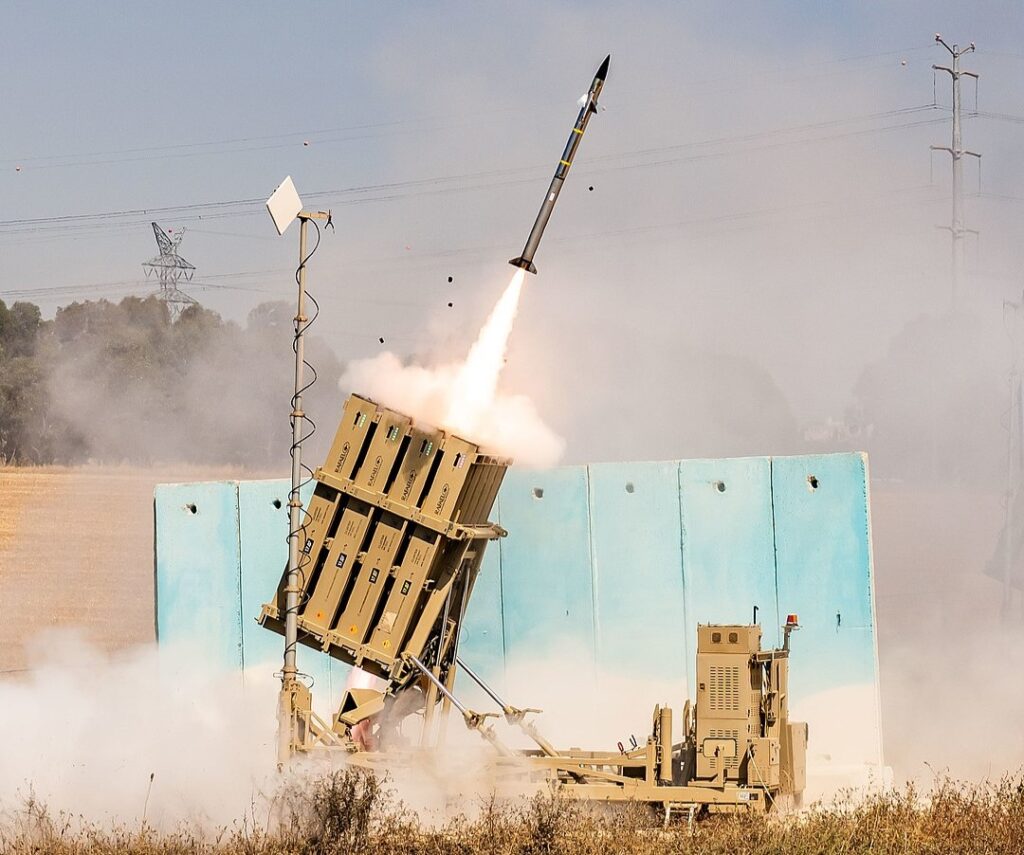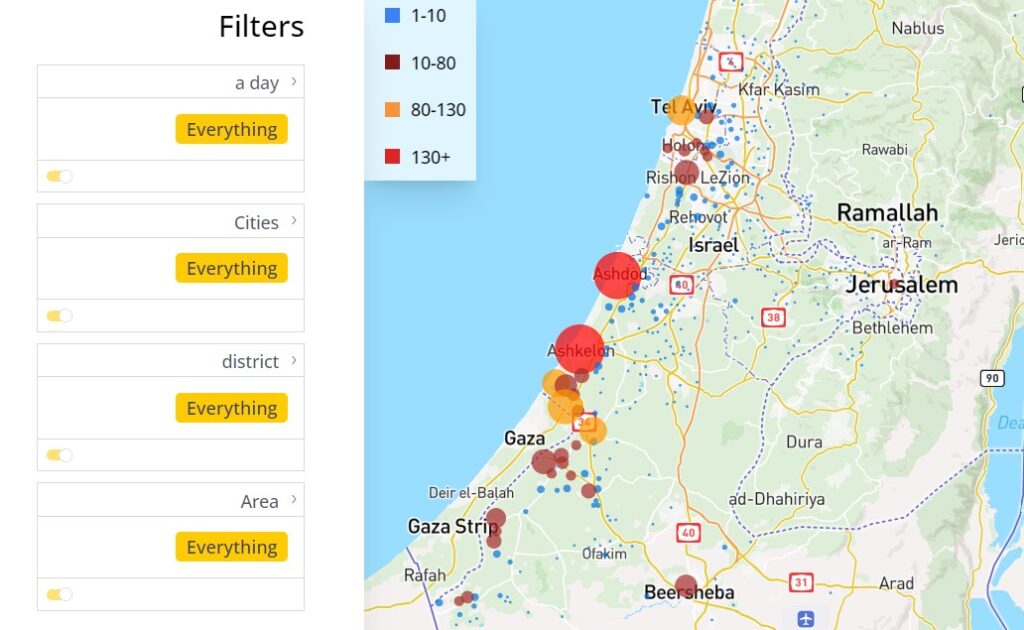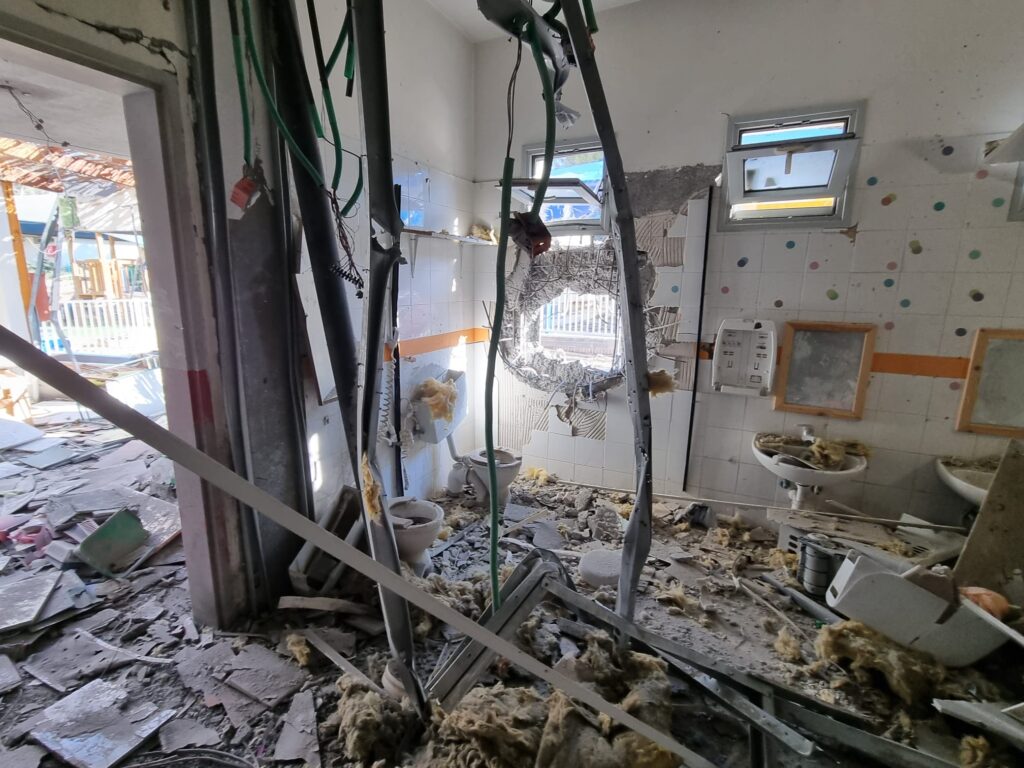A data analytics company in Israel is offering its artificial intelligence tools to help predict where and when the country will suffer rocket attacks during the ongoing war with Hamas in the Gaza Strip – even suggesting the optimal time to take a shower without interruption.
Sisense which uses machine learning to analyze data for companies, has made its technology available to Israeli government bodies and other institutions during the conflict.
Israel has been under continuous rocket fire from Gaza since October 7, when terrorists breached the border fence into Israel, killing 1,400 people and abducting at least 240 more. More than 8,000 rockets have been launched at the country since then.

While most of the projectiles are intercepted by Israel’s Iron Dome missile defense system, the system is not infallible and the threat of the rockets – as well as falling shrapnel from interceptions – means Israelis still must rush into bomb shelters when the air raid sirens sound.
“Our platform helps to tap into large, fragmented sets of complex data sources, immediately make sense of all of these data sources and model them into a single source,” Sisense Chief Product Officer Ayala Michelson tells NoCamels.
“We help [companies] query the data behind the scenes, and then visualize it however they want in their applications. And we have a suite of tools to help them do that,” she says.
The platform can be easily integrated into existing systems without having to rewrite code or make other changes to data management, Michelson explains.
“It’s just a drag and drop wizard,” she says. “We know how to access all of the different data sources, and we know how to bring them into the same structure.”

Once the platform has been integrated, the Sisense system aggregates the often multifaceted data, providing forecasts of what will happen and why the data points to that prediction.
“We know how to take the data which is complex for many people and put it in simple words that we call it narratives,” Michelsen says.
She gives the example of a retail company that experiences a peak in sales on a certain day, which can look at different factors that correlate to that uptick.
And, according to Michelsen, the same principles are true when looking at trends in rocket fire.
Sign up for our free weekly newsletter
Subscribe“You can query the data in simple words and tell me: How many rockets were fired between Thursday to Sunday? What are the most probable areas that I should avoid going to on a Friday night?” she explains.
Once the war began, the Ramat Gan-based company quickly built an internal dashboard to monitor the air raid sirens, Michelsen says, and began to use it to predict trends such as the best time to take a shower and which locations were most likely to be attacked.

As well as predicting rocket fire, Michelsen says, the platform can be used to help charitable organizations keep track of donations during the war – be it funding, food or equipment – and find the best place to distribute them.
“A lot of organizations are getting a lot of goods or money and it’s hard for them to keep track of who donated what,” she says.
“On the other hand, they also have a lot of people who need those goods and money and it’s hard for them to do that mix and match.”
The system can help to understand which donation centers are likely to be in short supply of which necessities and then draw on the data to find those goods from other locations.
Sisense itself is also providing wartime support on a more practical level, allowing employees to donate their time during working hours and raising funds to purchase essentials for soldiers and others affected by the conflict.

A member of the company’s team is from Kibbutz Be’eri, Michelsen says. While she was not there when the Hamas terrorists rampaged through the Gaza border community and killed more than 100 of its residents, they used her home in such a way that she can never return to it.
Some of the money raised by Sisense will go to the kibbutz, which was almost completely devastated in the October 7 attack and could take years to rebuild.
The company is currently providing free licenses for its software to the Israel Defense Forces Home Front Command, Israeli charities and foundations, and local councils.
“These are not examples of its day-to-day use,” Michelsen says of the technology. “But in these troubling times, this is a great way to utilize our platform.”
Related posts

Editors’ & Readers’ Choice: 10 Favorite NoCamels Articles

Forward Facing: What Does The Future Hold For Israeli High-Tech?

Impact Innovation: Israeli Startups That Could Shape Our Future




Facebook comments